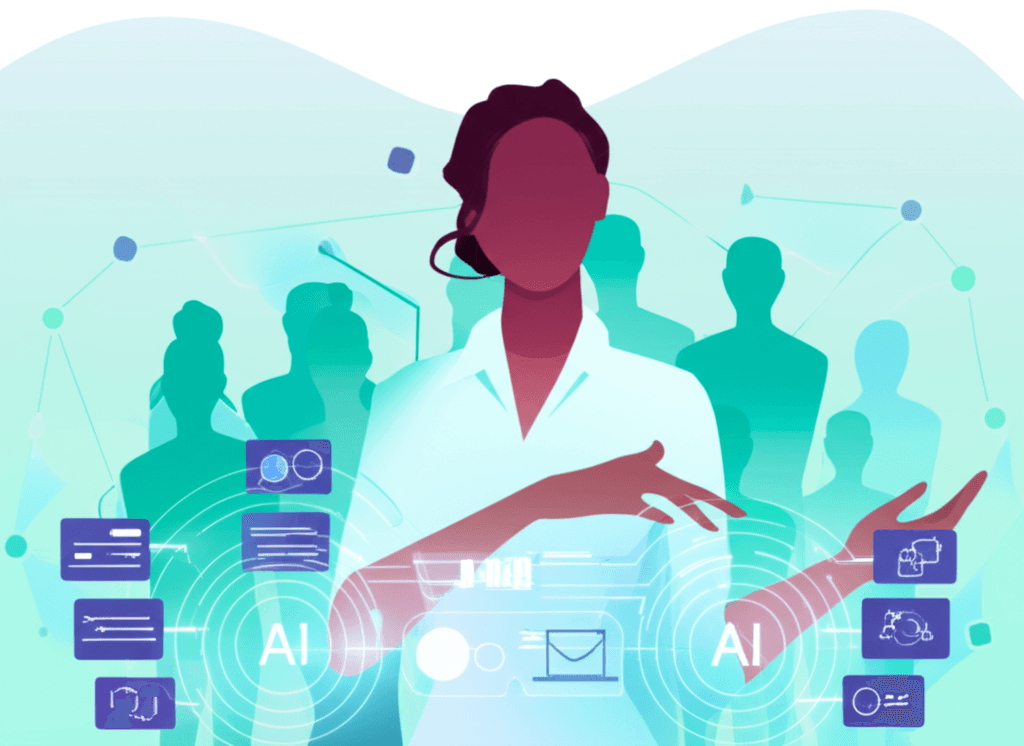Union, AI Leaders Forge Landmark $23M Plan to Train 400,000 Teachers
Union and tech giants launch a $23M initiative to train 400,000 educators, putting them in control of AI's future.
July 8, 2025

A landmark collaboration between leading artificial intelligence companies and the nation's second-largest teachers' union aims to reshape the landscape of American education by equipping hundreds of thousands of educators with AI proficiency. The American Federation of Teachers (AFT) has announced the launch of the National Academy for AI Instruction, a five-year, $23 million initiative to train 400,000 K-12 educators—approximately 10 percent of the U.S. teaching workforce—on how to integrate AI into their classrooms.[1][2][3] This ambitious program, a first-of-its-kind partnership between a national union and major tech firms, places teachers at the center of the conversation about AI's role in schools, a move intended to ensure the technology serves as a supportive tool rather than a disruptive force.[3][4]
The initiative is backed by a formidable coalition of AI industry leaders. OpenAI, the creator of ChatGPT, is the founding partner, contributing $10 million over five years, which includes $8 million in direct funding and $2 million in in-kind resources like engineering support and technical guidance.[5][6] Microsoft is the lead partner, providing $12.5 million, while AI safety and research company Anthropic has committed $500,000 for the first year.[1][3] The academy will be headquartered at the United Federation of Teachers (UFT) facility in Manhattan, with plans to establish additional hubs across the United States by 2030.[1][5] The program will offer free, comprehensive training to all 1.8 million AFT members through a combination of in-person workshops, online courses, and hands-on training sessions, with a focus on practical and ethical applications of AI in educational settings.[1][4]
A primary motivation for this partnership is the recognition that AI is already present in students' lives and that educators require formal training to navigate its challenges and opportunities.[3][7] A recent Gallup study revealed that six in ten educators are already using AI tools, saving an average of six hours per week on tasks like lesson planning and creating quizzes.[5][3][6] AFT President Randi Weingarten has emphasized that while technology can never replace the direct connection between a teacher and a student, harnessing AI effectively can enhance both teaching and learning.[1] The goal is to put "teachers in the driver's seat," empowering them to set commonsense guardrails and ensure AI is used wisely and ethically.[1][4] This sentiment was echoed by UFT President Michael Mulgrew, who expressed hope that the academy will allow teachers to have a say in the development of AI tools, a departure from past edtech that was often "pushed onto teachers."[3] For the tech companies, the collaboration is an opportunity to shape the future of AI in a critical sector, ensuring that educators are central to its development and deployment.[8][3]
The curriculum, designed by AI experts and educators, will focus on developing practical AI fluency.[1][5] It will provide credentialed pathways and continuing education credits, addressing a critical gap in professional development for AI.[2][3] The training aims to help teachers use AI to streamline administrative work, create more engaging lesson plans, and personalize instruction, ultimately freeing up more time for the human-centric aspects of teaching.[6][9] Marlee Katz, a teacher for the deaf and hard of hearing in New York City, noted that AI tools can assist with communication and reduce burnout, acting like a "best friend that can help you communicate" without taking away the teacher's voice.[3] The initiative will also prioritize access for high-needs school districts, aiming to democratize AI skills and ensure students from all backgrounds are prepared for an AI-driven future.[5][10]
Despite the optimistic launch, the partnership is not without its critics and complexities. The significant financial investment from major tech corporations raises questions about their influence on classroom practices and curriculum.[7] Some skeptics worry about the potential for over-reliance on AI, which could stifle creativity in lesson planning or lead to a passive learning environment for students.[9][11] The initiative also arrives amid a fiercely competitive AI landscape, where companies like Google are also releasing their own suites of AI tools for educators, highlighting the race to gain a foothold in the lucrative education market.[3] Concerns about data privacy and the ethical use of student information remain paramount, although OpenAI has stated that data from its educational portals will not be used to train its models.[12] This landmark initiative represents a proactive effort to guide the integration of AI in education, but its long-term success will depend on navigating these challenges and maintaining a focus on empowering, rather than replacing, the essential role of the teacher.